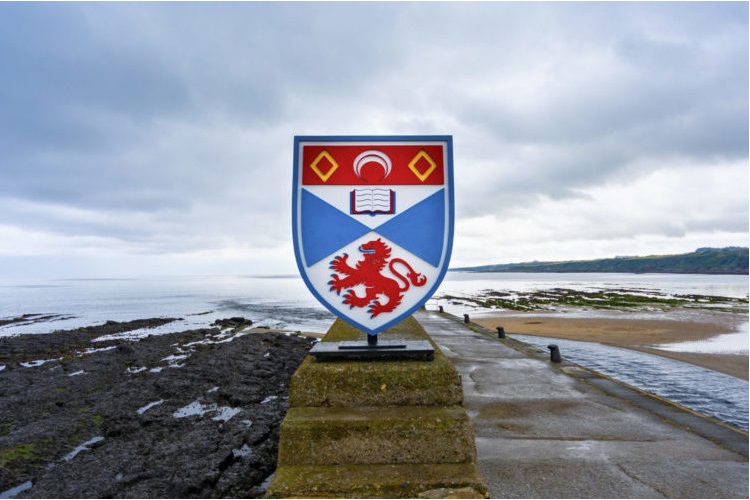St Andrews hosts landmark event to mark 25 years since Dayton peace accords

The University of St Andrews is hosting a major international event to mark the 25th anniversary of the Dayton Peace Accords which brought peace to Bosnia and Herzegovina.
The peace plan, thrashed out at the Wright-Patterson Air Force Base outside Dayton, Ohio, brought an end to four bloody years that claimed more than 100,000 lives and caused more than two million people to flee their homes.
In a series of events, ‘Balkans Backwards and Forwards, 25 Years After Dayton’, over five weeks, experts from across the globe including the Balkans will join researchers from St Andrews to take a panoptic, systemic view of the region over the post-Cold War period, as well as to project forward 20 years.
In addition, the symposium will look at what lessons from the region’s past and present might be applicable elsewhere, including in what hitherto had been seen as “the democratic West”, which is suffering sustained bouts of many of the maladies experienced in the Balkans.
Alan Little, veteran BBC correspondent and co-author of the seminal book and TV series The Death of Yugoslavia, will open the series.
Dr Tim Wilson, Director of the Centre for the Study of Terrorism and Political Violence (CSTPV) said: “A quarter of a century ago – in the oddly sterile setting of the Dayton air force base, Ohio – the worst of the wars of Yugoslav secession was finally shut down. By late 1995 over three years of war in Bosnia had killed over 100,000 people; unleashed campaigns of mass rape and genocide; and destroyed a vibrant multicultural society. A better future finally beckoned for the Balkans.
“Late 2020 seems high time to take stock of how that future actually unfolded. The Handa Centre for the Study of Terrorism and Political Violence (CSTPV) at the University of St Andrews is therefore proud to host an ambitious month-long series of online discussions convened by CSTPV’s in-house regional expert, Kurt Bassuener. These will gather together a unique cast of leading Balkan experts to discuss the challenges for the region: past, present and future.
“The year 1995 represented a high noon for western liberal triumphalism. Twenty-five years on, though, the mood is distinctly darker. As western democracies themselves begin to look more polarised and dysfunctional, the lessons to be learnt from the fate of the Balkans only grow in importance. ‘Balkans Backwards and Forwards’ represents a timely set of discussions: and a necessary one.”
‘Balkans Backwards and Forwards, 25 Years After Dayton’ events will be staged virtually across the globe. Every Tuesday from 2pm to 4pm the events will be hosted on Microsoft Teams. To join each talk follow the links to each event or follow @cstpv on Twitter.
Outline programme:
Opening – Week 1 – Tuesday 10 November 2020
Introduction: Dr Tim Wilson, Director of CSTPV, and Stephen Gethins, Professor of Practice, School of International Relations
Keynote Address: Allan Little, BBC senior correspondent and co-author of The Death of Yugoslavia (30 to 45 minute presentation with the remainder of the two hours given over to Q&A)
Discussant: Dr Kurt Bassuener, Senior Associate, Democratization Policy Council and CSTPV doctoral candidate
Moderator: Stephen Gethins
Week Two – Tuesday 17 November 2020 – Thematic Panel: How We Got Here
Moderator: Dr Tim Wilson, CSTPV
- Dr Tomasz Kamusella, Reader, School of History, University of St Andrews: Todor Zhivkov’s ethnic cleansing of Bulgaria’s Turks and Muslims – lessons and implications in the neighbourhood
- Sonja Biserko, Helsinki Committee for Human Rights in Serbia: Muscle memory of non-alignment and the persistence of the Greater Serbia project
Discussion and Q&A, conducted by Tim Wilson
Week Three – Tuesday 24 November 2020
Note: In the week prior to 24 November, Valery Perry’s film Looking for Dayton, shown at the 2020 Sarajevo Film Festival, will be available for viewing.
Thematic Panel: Crippled in Triage – Dayton Saves and Hobbles Bosnia and Herzegovina
Moderator: Dr Tim Wilson, CSTPV
- Peter Lippman, author of Surviving the Peace: The Struggle for Postwar Recovery in Bosnia and Herzegovina – Grassroots Human Rights Campaigns in Bosnia-Herzegovina: Pushing the boundaries of institutionalised obstruction
- Dr Kurt Bassuener, Senior Associate, Democratization Policy Council and CSTPV doctoral candidate, Peace Cartels – How power-sharing peace deals enabled perpetual oligarchy in Bosnia and North Macedonia
- Dr Senada Šelo Šabić, University of Zagreb/Institute for Development and International Relations (IRMO): A view from the field – and a proposal: municipalities as the elementary building blocks of democracy in BiH and beyond
Week Four – Tuesday 1 December 2020
Thematic Panel: Welcome Back to Geopolitics in the Balkans – A Panel and Q&A
Moderator: Dr Mateja Peter, School of International Relations
- Dr Tena Prelec, Research Fellow, Department of Politics and International Relations, Oxford: The geopolitical utilities of sultanism in the Balkans
- Ljupcho Petkovski, Director, Stellar Research, Skopje: External Illiberals and the Lure of Reactionary Values
- Bodo Weber, Senior Associate, Democratization Policy Council, Berlin: The Belgrade-Prishtina Dialogue – a case study in transatlantic policy malpractice
- Jeta Krasniqi, Project Manager, Kosovo Democratic Institute: Western Balkans: Transatlantic Unfinished Business?
Week Five – Tuesday 8 December 2020
Thematic Panel: Where Can We Go? Potential for civic initiative and organic progress, Western fragmentation and authoritarian initiative
Moderator: Stephen Gethins, Professor of Practice, former MP for Fife, former Vice-Chair of All-Party Groups for Serbia and Bosnia and Herzegovina
- Dr Ivan Stefanovski, Eurothink, Skopje: What happened to the “Balkan Spring”? Lessons from social movements’ failures and breakthroughs
- Dobrica Veselinović, Ne Davimo Beograd movement, Serbia: Constructing functioning civic governance in Serbia from the local
- Dr Valery Perry, author/editor of Extremism and Violent Extremism in Serbia: 21st Century Manifestations of a Historical Challenge (Columbia/Ibidem, 2019): Institutionalised corruption, malgovernance and injustice as drivers of radicalisation and extremism – The good, the bad, and the ugly
Closing Remarks and Reflections: Tim Wilson
Issued by the University of St Andrews Communications Office.